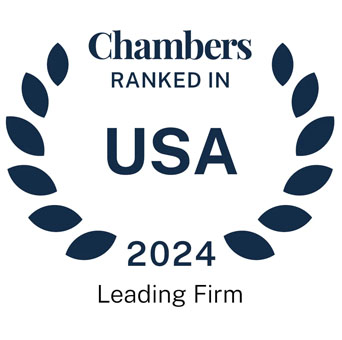The Small Business Jobs and Credit Act of 2010 (the “Small Business Act”), signed into law on September 27, 2010, will allow participants to convert non-Roth accounts in certain plans to Roth accounts within the same plan, if the plan so provides. This article explains these in-plan Roth conversion rules and what employers should consider in deciding whether (and when) to amend plans to provide for Roth conversions.
Background on Roth Plans
A qualified plan or 403(b) plan that permits pre-tax elective deferrals may also permit participants to designate any elective deferral as a Roth contribution. Contributions designated as Roth contributions are taxable to the participant in the year contributed. If certain requirements are met, Roth contributions and the earnings on those contributions may be distributed tax-free at retirement or termination of employment.
Roth Conversion Options before the Small Business Act
Qualified plans and 403(b) plans are already required to permit rollovers to Roth IRAs. Similarly, a traditional IRA may be converted to a Roth IRA. The rollover or IRA balance is taxable to the participant or IRA owner and, if certain requirements are satisfied, distributions from the Roth IRA are tax-free. Individuals who execute such a rollover or conversion during 2010 may either include the taxable portion of the rollover or conversion in income for 2010, or elect to include half the amount in income for 2011 and the other half in income for 2012. This special tax-deferral option is also available for Roth conversions within a qualified plan or 403(b) plan. Unfortunately, as explained below, only participants who are eligible for a plan distribution during 2010 will be able to take advantage of this tax-deferral opportunity.
Roth Conversions under the Small Business Act
A 401(k) plan, 403(b) plan or (beginning in 2011) governmental 457(b) plan¹ which permits participants to designate elective deferrals as Roth contributions may also permit participants and surviving spouses to transfer an eligible rollover distribution from a non-Roth account to a Roth account within the same plan. The amount transferred is generally taxable in the year of the transfer and reportable on Form 1099–R.
What Plans are Eligible?
A Roth conversion feature may be added to any plan that provides for Roth elective deferrals. Roth elective deferrals may be made to a 401(k), 403(b) or (beginning in 2011) governmental 457(b) plan. Thus, if a plan does not presently permit Roth elective deferrals, the plan must be amended to provide for them in order to allow for in–plan Roth conversions. It is not clear at this time whether or not Roth conversions will be permitted in a plan that contains designated Roth accounts but no longer accepts Roth elective deferrals.
Who is Eligible?
Because Congress chose rollovers as the vehicle for in-plan Roth conversions, they are available only to participants and surviving spouses who are entitled to an eligible rollover distribution (e.g., upon termination of employment). A Roth conversion may not be made available to a beneficiary other than the participant’s surviving spouse (e.g., a child, relative or domestic partner, or a person recognized as the participant’s spouse under State law, and not recognized as such under Federal law). Note that these non-spouse beneficiaries may roll over an eligible rollover distribution to an inherited IRA (including to a Roth IRA), but not to an employer-sponsored retirement plan.
It appears that any distribution that qualifies as an eligible rollover distribution, regardless of the source of funds, may be rolled over to a Roth account. Thus, pre-tax, matching, profit-sharing and even after-tax contributions should be able to be rolled over into a Roth account. It is not clear whether a participant may choose the source of funds to be rolled over. Presumably, that would depend on whether the plan otherwise permits participants to choose the source of funds for a distribution.
Participants should be aware that once an in-plan Roth conversion is completed, the transaction cannot be unwound. In contrast, if certain requirements are met, an IRA owner who elects to convert a traditional IRA to a Roth IRA may recharacterize the Roth IRA as a traditional IRA.
Plan Amendments
In-plan Roth conversions are an optional feature even for plans that already permit Roth elective deferrals. Thus, a plan need not be amended unless it will permit Roth conversions. However, we anticipate that many employers will be asked to implement Roth conversions before the end of 2010 by participants who wish to defer payment of tax on the conversion to 2011 and 2012 under the special tax deferral rule discussed above. Unfortunately, an employer that desires to permit Roth conversions during 2010 must amend its plan to provide for them by the end of 2010, because the Small Business Act does not provide a remedial amendment period. Nonetheless the IRS may provide one. The Technical Explanation states that:
Changing In-Service Distribution Rules to Facilitate Roth Conversions
What makes in-plan Roth conversions attractive, in comparison to rollovers to Roth IRAs, is that an employer may amend a plan’s in-service withdrawal rules to facilitate Roth conversions. As a result, the participant can, and may be required to, keep the withdrawn amounts in the plan. The Technical Explanation states that:
Please contact us if you would like to discuss adding a Roth conversion feature to your plan.
_____________
¹ Under the Small Business Act, governmental 457(b) plans may permit Roth elective deferrals effective January 1, 2011.



